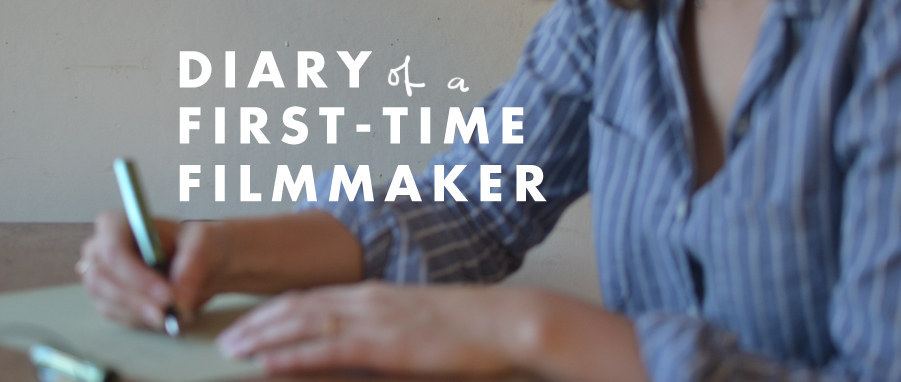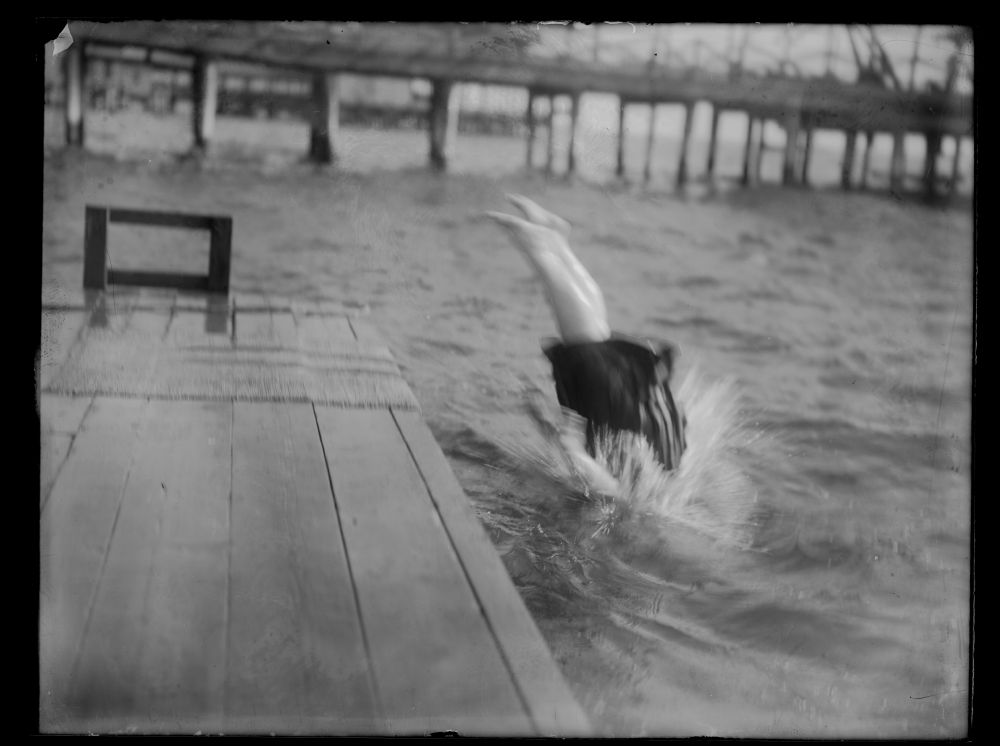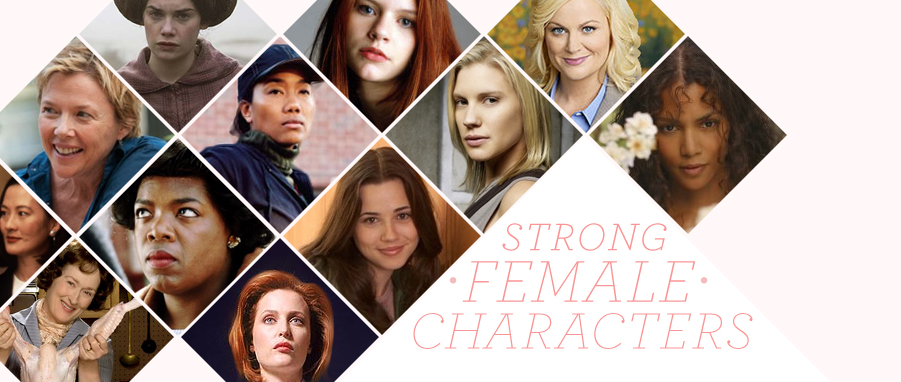Dementia is a prism through which all memory is refracted. As the person my mom was continues to recede, I realize that I too am forgetting her. My memories have morphed into a series of impressions, like a Terrence Malick movie. I know her hands and feet, her long fingers and toes, her knuckles knotted from years of cracking. I know her hair, how one side flips out and the other curves in (like mine). I remember how she regarded herself in the mirror, working up courage to confront her reflection and accepting the disappointment that washed over her before moving on. I can conjure all these impressions, but our past conversations, the rhythm with which we spoke, is blurring. I have the general plot outlines of our stories, but they are Monets; there is no specificity of form, just the interplay of light and movement and feeling.
Because I forget as Mom forgets, I figure it’s time to start record keeping. My son will not know the mother I knew, won’t experience the ways in which the two of them are already so similar. As Henry gets older, I’ll share my memories of Mom, fuzzy though they may be. But the prudent Virgo list-maker in me is compelled to document some details of myself that Henry may, one day, find himself straining to recall—the nuances, quirks, and peccadillos that make up and enhance the whole and which, unfortunately, are the first pieces of us to go. So, to the future Henry, here’s my List of Things I Don’t Want You to Forget About Me:
1. I like movie trailers. No, I love movie trailers. I do not miss them when I go to the movies, and I even regularly use my Trailers app to watch several. In one sitting. I guess I enjoy the anticipation of a new movie as much as the event itself. When done well, a good trailer reads like the short story version of the film, which sometimes proves better than the actual film. For reference, you can dismiss any trailer with voiceover, big red comedy font, or lines that begin with “This fall, celebrate the wonder . . . ” said in voiceover while appearing onscreen in big red comedy font.
2. I love a good blooper reel. Isn’t that dumb? It’s an elemental, base form of entertainment to crack up for no other reason than because other people are cracking up. The best outtakes lack any logic or shape; they are just viral, infectious energy. Of course, moments like this can be experienced firsthand, but if you ever need a shot of good, clean entertainment that won’t result in an arrest record or getting intimate with a toilet bowl, watch outtakes of Brian Unger interviewing Zach (Seth) Galifianakis from Live at the Purple Onion. Also of note: any outtake featuring Ricky Gervais.
3. My favorite time to watch a horror film is midday, preferably when it’s moody and stormy outside. I discovered this after years of yo-yoing between loving scary movies and being, well, scared shitless by them. I’m a fraidy cat and a safety enforcer, but I also love the (fake) thrill of a good (fake) scare. At the time of this writing, you are four years old, but when you hit sixteen, I plan to school you in some of my favorites. But only during daylight hours.
4. I take great (and somewhat undeserved) pride in my working as a server during college. I was mediocre at best—I refused to upsell and once spilled a tray of drinks on a family of four—but through it I developed a taste for hard work and hard play, learned how to hustle, and saw the best and worst of what humanity has to offer. You walk through life with new eyes once you’ve had to serve others, returning their perfectly cooked steaks to the grill guy and crawling under booths for their kids’ dirty diapers. But I like to think it makes you a better person and educates you in the art of appreciating others and treating them well. Also, I can carry three drinks in one hand and nearly all the sensation has been singed off my fingertips by hot plates!
5. I instigate tickle fights and turn into a spastic pinwheel of limbs when tickled back. I am not above biting, hair pulling, or eye gouging in a tickle attack. Daddy has learned this the hard way.
6. I sing a lot, subjecting you to weak and quavering renditions of Patsy Cline, Jolie Holland, Fiona Apple, Jenny Lewis, and Emily Haines songs in the car and at bedtime. My voice is lowish and my range limited, but I do not let that stop me. Sometimes in the car, you cover your ears and shriek, “Mommy, stop the singing you’re hurting my ears!” Sometimes when I’m bathing you and singing low, you look at me with doleful eyes and say, “Mommy, that’s lovely.” You’re the only person I do this around, and my mother did it with me. She and I used to harmonize to Simon & Garfunkel and Aretha Franklin and (god help me) The Judds. I don’t know how much longer you’ll allow me to do this without becoming critical (more critical than “you’re hurting my ears,” that is) and mortally humiliated, so I’m doing it while I can. But if by the time you’re older you have no memory of me singing, let this be your reminder.
Now and again, a forgotten aspect of Mom will float past me like a leaf swept up in a breeze, and I catch it by writing it down, committing it to paper. The remembering helps me to grieve in a way that is necessary and productive and deserving of her, rather than the rest of it, which is groping, blind, in a dark space. If I can give Henry some roadmap for remembering his neurotic, singing, laughing, potty-mouthed, loving mother, then maybe losing my mom in this particular way has purpose, has meaning.














 Before I find the small side road that leads out to the vineyards and villas in the countryside, I run in the neighborhood to the west of Agnès’s apartment. Every day I head out in my shorts and tank top, which make me stick out among in the poor, mostly North African area. Maybe I should cover up more, but it is unbearably hot in Aix at the end of summer.
Next to the women in full burkhas, I feel a kind of freedom that I’ve never before had to consider. As I pass by — me running, them herding their bands of overheated children — I can feel their dark, kohl-lined eyes following me, an indecent blur of sun-browned skin and dark tattoos.
Before I find the small side road that leads out to the vineyards and villas in the countryside, I run in the neighborhood to the west of Agnès’s apartment. Every day I head out in my shorts and tank top, which make me stick out among in the poor, mostly North African area. Maybe I should cover up more, but it is unbearably hot in Aix at the end of summer.
Next to the women in full burkhas, I feel a kind of freedom that I’ve never before had to consider. As I pass by — me running, them herding their bands of overheated children — I can feel their dark, kohl-lined eyes following me, an indecent blur of sun-browned skin and dark tattoos.






 I am in a café in Bernay with Clémence and her friends. It is comforting to have these people around me, but it doesn’t always mean that we understand each other.
I am in a café in Bernay with Clémence and her friends. It is comforting to have these people around me, but it doesn’t always mean that we understand each other.
